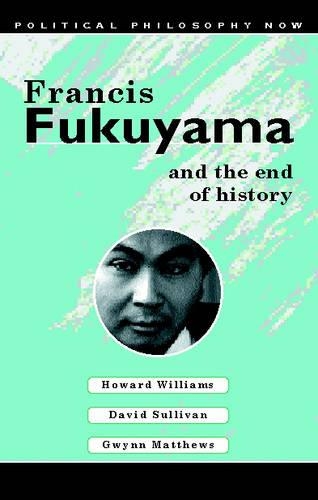
Francis Fukuyama and the End of History
(Paperback)
Publishing Details
Francis Fukuyama and the End of History
By (Author) Howard Williams
By (author) E Gwynn Matthews
By (author) David Sullivan
University of Wales Press
University of Wales Press
26th March 1998
United Kingdom
Classifications
Tertiary Education
Non Fiction
Historiography
Political science and theory
901
Physical Properties
Paperback
209
Width 138mm, Height 216mm
Description
In the early 1990's the American academic, political commentator and government advisor, Francis Fukuyama, leapt to prominence with his argument that society had entered a new and lasting phase. He claimed that the change was so dramatic that it might be accurately depicted as representing the end of history. Fukuyama derived his argument from the writings of Kant, Hegel and a critical reading of Marx. This new phase represented the worldwide triumph of liberal democracy with the collapse of Communism. History has ended in the sense that there is no more room for large idealogical battles. This first book, is an in-depth discussion of Fukuyama's influential argument, it is both lucid and thorough. In addition it relates Fukuyama's theory of history to Karl Popper's criticism of historicism and attempts to denote the connection between Fukuyama's account of history, and that of the Christian religion.The book concludes by assessing the impact of Fukuyama's work upon the philosophy of history and its importance in evaluating the recent course of international relations and US foreign policy.
Reviews
'This excellent study deals with Francis Fukuyama's high-profile, and controversial, work on "The End of History"...the authors leave one convinced of Fukuyama's importance, though not necessarily his correctness...This book is a fascinating read, and is itself a substantive and timely contribution to the philosophy of history.' Philosophy in Review
Author Bio
Howard Williams is a Professor at the very well respected Politics department at the University of Wales, Aberystwyth. Gwyn Matthews is a Lecturer at the University of Wales, Bangor. David Sullivan graduated from University of Wales, Cardiff and is currently a tutor at Coleg Harlech in Philosophy and Politics.
